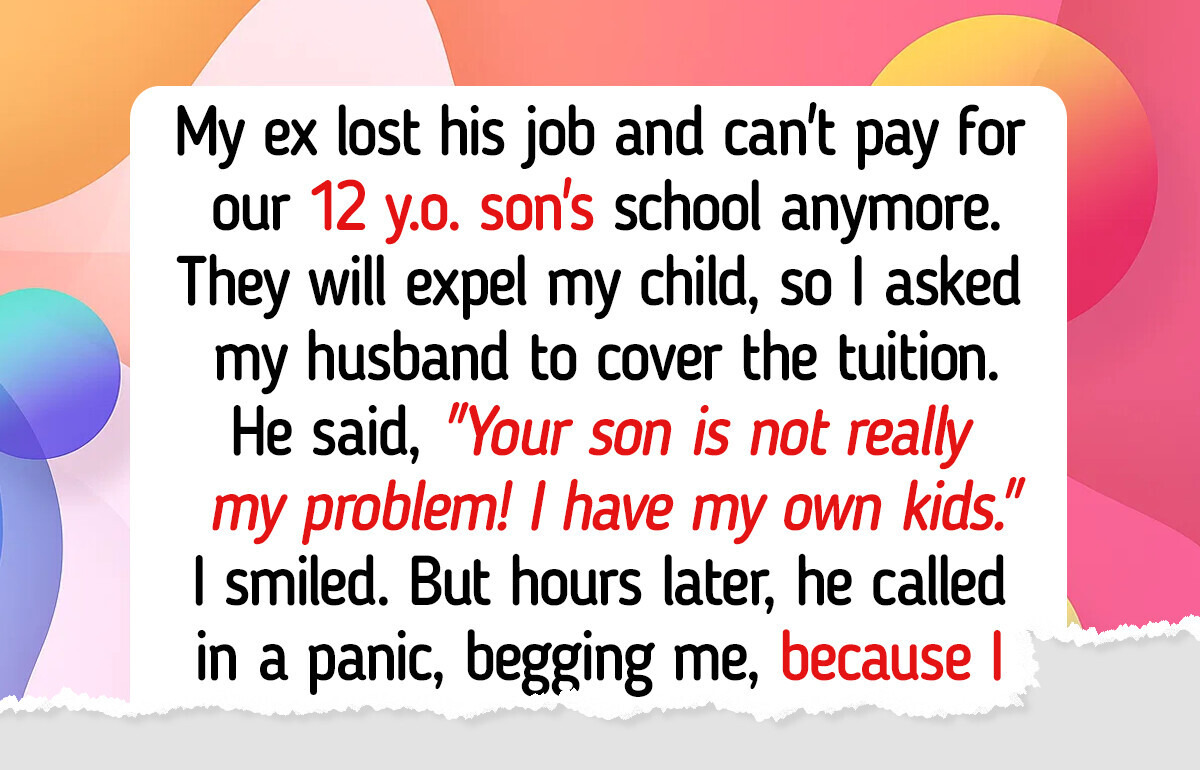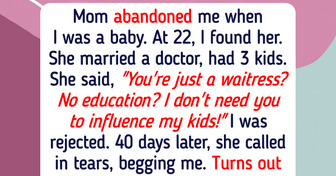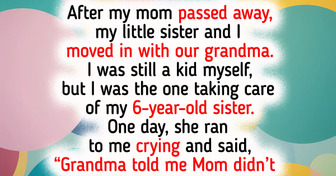It's simple. The boy's father should pay the tuition and he has been doing so. Unfortunately, he can't right now. The husband/stepfather is ignoring several things. First, his wife loves her son. If he can afford to pay the tuition, he should do so because he loves HER. Second, there are three children in the household who are not HERS. Does she make dinner for them? Drive them to school and appointments? Pick up after them? Or does he do all that stuff for his kids?
My Husband Refused to Pay for My Son’s Education—So I Turned the Tables

Family dynamics in blended households can be both rewarding and incredibly challenging, especially when it comes to raising children from previous relationships. Conflicts around finances, loyalty, and parental responsibility often bring hidden tensions to the surface. Many partners find themselves questioning where their boundaries lie—and what truly defines a family.
Recently, we received a heartfelt letter from a reader who faced a painful situation when her husband refused to support her son’s education.
Louisa’s letter:

Dear Bright Side,
My current husband and I have been married for 8 years. He has three teenage kids from a previous marriage, and I have a 12-year-old son with my ex. Recently, my ex lost his job and can no longer pay for our son’s school.
They were going to expel my child, so I asked my husband to cover the tuition. He said, “Your son is not really my problem! I have my own kids.”
I just smiled. But that same night, he froze when I revealed that I was pregnant. We’ve been trying for a baby for years, and I found out two days ago.
I had planned to surprise him with the news. But after what he said to me, I realized that things couldn’t go on like this...
I left the house while he was sleeping. At 3 a.m., my husband called me in a panic, begging me to return because I had packed all my things.
I told him that if he was going to treat my son like a stranger, then he didn’t deserve to be a father to my unborn child. My child would be better off without him.
Now my husband is crying and asking me to come back, but I can’t live with a man who sees my child as a burden just because he’s not his biological son.
I’m truly devastated—especially since he can afford to pay for my child’s school.
My friends said I was overreacting. Am I wrong to feel this way?
Sincerely,
Louisa
Thank you for sharing your story, Louisa—what you’re going through is deeply emotional and complex, and it takes courage to speak about it honestly. Here are 4 pieces of advice to help you navigate this situation from different angles.
Pause and set a temporary boundary for space and reflection.
You’ve already made a powerful move by leaving the house, which signals that this is serious. Use this separation intentionally—not as a final decision yet, but as a structured space for you both to reflect.
Let him know (if you’re open to it) that you are not closing the door, but you need time to evaluate whether the relationship can be rebuilt on mutual respect. During this time, avoid direct negotiations or emotional back-and-forths. Instead, focus on journaling your feelings, imagining different outcomes, and consulting with a therapist or counselor for clarity.
Have a focused, no-emotion conversation about family integration values.
Set up a calm, neutral conversation (possibly with a mediator or counselor) to revisit the foundational values of your marriage. Ask him directly: Does he see your son as part of the family? Is he willing to emotionally and financially invest in a child you came into the marriage with?
Make it clear that this isn’t about comparing your children or playing favorites—it’s about the core principle of unity in blended families. His answer should inform not only your next step as a partner but also as a mother protecting both children—born and unborn.
Reframe the pregnancy: what kind of home do you want to raise this child in?

what is your relationship with your step-children like? would you do for them what you are asking your husband to do, if you had the means?
You said you were trying for a baby for years. That means this child was hoped for—but that hope included a shared vision. Ask yourself: Would bringing a baby into this environment feel like safety or compromise? If he already excludes your first child, what assurance do you have he’ll treat your second differently long-term?
Consider whether parenting alone or with alternative support (e.g., family, close friends, co-parenting networks) would provide a more emotionally secure environment for both of your children.
Challenge the “overreacting” label from friends with truth and context.
When friends say you’re overreacting, gently push back. Explain: It’s not about one comment; it’s about what that comment reveals. The fact that your husband could afford the tuition and still refused out of detachment or resentment suggests a fundamental disconnect.
These aren’t just parenting logistics—this is about loyalty, empathy, and partnership. If your friends can’t see that, consider seeking insight from others who understand the challenges of blended families or who have navigated emotionally complex situations like this one.
Here’s another story that sparked debate. Cynthia excluded her stepmother—the woman who raised her since childhood—from her wedding in order to please her biological mother. What happened next was completely unexpected. Read the full story here.
Comments
Related Reads
I Inherited Grandma’s Legacy, but My Family Is Ready to Tear Me Apart for It

I Refuse to Split My Grandfather’s Legacy — I Was the Only One Who Cared for Him

16 Moments That Show Kindness Is the Quiet Courage the World Needs

I Refused to Knit My Coworker a Free Blanket, and Now HR Is Involved

13 Stories of Quiet Kindness That Show Superhuman Strength in Ordinary People

20+ Stories That Prove Having a Supportive Family Is the Best Safety Net in the World

I Trained the New Hire Who Took My Promotion—My Revenge Was Calculated

10 Stories That Prove Kindness Is the Backbone of Humanity

I Refuse to Cook Vegan Meals for My Stepson—And It Turned Into a Nightmare

15 Stories That Remind Us the Beauty of Everyday Kindness

16 Moments That Show Kindness and Empathy Stay Warm in a Cold World

13 Teachers Who Didn’t Just Teach a Subject, They Rescued a Soul



